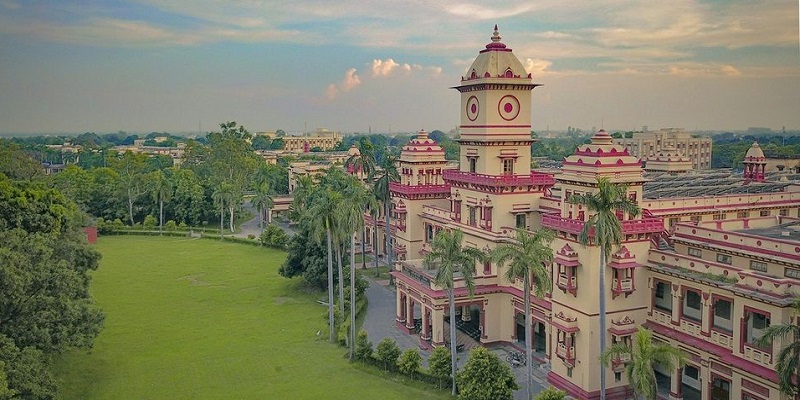About IIT(BHU)-Varanasi
The Indian Institute of Technology (Banaras Hindu University), Varanasi is located in the magnificent campus of Banaras Hindu University at the southern end of the ancient city of Varanasi on the banks of the holy river Ganga. Engineering Education in Banaras Hindu University commenced in 1919 with the establishment of Banaras Engineering College (BENCO). The Institution has also pioneered engineering education by being the First in the country to start degree courses in Mining, Metallurgy, Ceramic Engineering and Pharmaceutics with the establishment of the College of Mining and Metallurgy and the College of Technology in the year 1923 and 1932 respectively. In 1969 these three colleges were integrated together to form a stand-alone Institute of Technology, BHU. In 2012, the Government of India officially converted IT(BHU) into IIT (BHU), Varanasi and since then, IIT(BHU) is an independent academic organization contributing towards nation building. The institute aspires to be a harbinger of modern interdisciplinary technological advancement in the country and at a forefront of imparting quality education by use of innovative pedagogy culminating traditional with contemporary methods. The founder of Banaras Hindu University, Bharat Ratna Mahamana Pandit Mandan Mohan Malviyaji has started courses in Glass and Ceramic Technology as early as 1924 with the noble objective of advancing glass and ceramic technology in India. The department of ceramic engineering is the only department in Indian IIT-systems. The first-ever department was established in pre-independent-India and Asia to develop skilled human resources for various ceramic industries country-wide. The ceramic engineering department holds an unparalleled and significant contribution to building up the nation throughout the past 100 years with a vast contribution towards academic, industrial, and R & D areas in our country. The department is actively engaged in teaching and research and already established strong capabilities to support the various research and teaching activities.
About IRMA
IRMA stands for the Indian Refractory Makers Association. It is a national organization for the refractory manufacturing companies in India. It was set up in 1958, and currently 75 manufacturing units in the membership of IRMA. IRMA is the national body for Indian companies - designing, engineering, installing and maintaining refractories for cost-effective and value-added operations in manufacture of steel, non-ferrous metals, cement, glass, ceramic products, calcination of lime and other non-metallic minerals, chemicals and fertilizers, boilers and incinerators, and a host of other high-temperature applications.
Background:The Need of an Independent Research/Testing Laboratory for Indian Refractory Industries:
The refractories laboratories available in India are either research Institutes or in house laboratories engaged generally in research or quality control functions. There is longer lead time for some and conflict of interest with others makes it difficult to get any product tested independently and in a time bound manner. In today’s' world, designers of refractories materials, equipment using refractories, purchasers and even refractory manufacturers need independent reliable testing of materials either to be used by them or produced by them. In certain cases the users insist to get the materials tested in overseas laboratory E.g. DIFK Germany, Ceram UK etc. It is costly and time consuming. A change in testing procedures sometimes leads to conflicts, generally resolved by intense communication. It is therefore essential that an independent laboratory be set up in the country which would have extremely high accuracy level, having modern equipments for testing as per procedures of all international specifications and provides quick results as per need of the test and industry.
